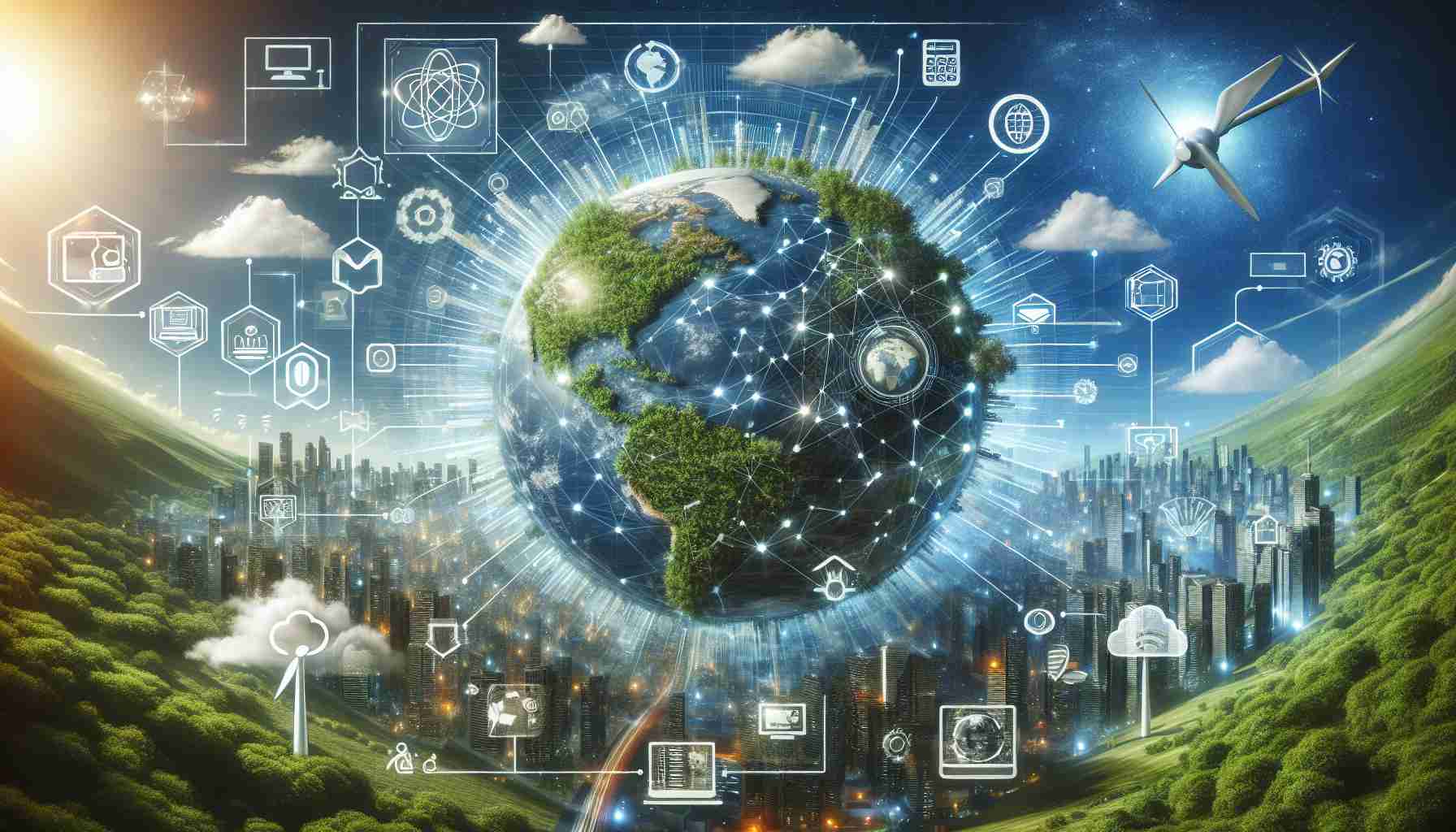The report from Capgemini Research Institute suggests that the potential of untapped digital technologies is enormous. The digital-ecological economy, based on digital technologies and sustainable development, aims to double its global value to nearly $33 trillion by 2028. The study involved 1,500 managerial employees from 1,350 large organizations.
The implementation of digital technologies has allowed organizations to reduce energy consumption by nearly one-fourth and greenhouse gas emissions by 21% over the past five years, according to the report. The dual transformation towards a digital-ecological economy, which combines economic, environmental, and social values, will contribute to economic growth in which sustainable development will be crucial.
The digital-ecological economy supports new business models, the creation of new revenue sources, and cost efficiency. It is based on the utilization of data, cloud technologies, collaborative ecosystems, and connected products and services. According to the report, seven out of ten organizations agree that technology-driven business models will be a key revenue growth factor in the next three to five years. Moreover, 60% of them expect these models to generate higher revenues than traditional business models.
“At various levels of the company, we explore the value of digital technologies in the digital-ecological era, such as scaling data and cloud, as well as the key role of digital technologies in achieving sustainable development goals,” says Suraj Srinivasan, a professor at Harvard Business School. “We also observe rapid technological advancements such as generative artificial intelligence and synthetic biology, as well as increasing collaboration, leading to the emergence of digital ecosystems.”
In the following article, the main information from Capgemini Research Institute’s report on the potential of digital technologies in the digital-ecological economy is presented. Here are the key questions and answers regarding this topic:
1. What is the potential of digital technologies in the digital-ecological economy?
The report indicates that the potential of untapped digital technologies is enormous. The digital-ecological economy aims to double its global value to nearly $33 trillion by 2028.
2. What are the benefits of implementing digital technologies?
The implementation of digital technologies has allowed organizations to reduce energy consumption by nearly one-fourth and greenhouse gas emissions by 21% over the past five years.
3. How does the digital-ecological economy support business development?
The digital-ecological economy supports the development of new business models, the creation of new revenue sources, and cost efficiency. It is based on the utilization of data, cloud technologies, collaborative ecosystems, and connected products and services.
4. What are the revenue growth forecasts for digital technology?
According to the report, seven out of ten organizations agree that technology-driven business models will be a key revenue growth factor in the next three to five years. Moreover, 60% of them expect these models to generate higher revenues than traditional business models.
5. What are the important areas of exploration for digital technologies?
Companies explore various areas of value in digital technologies in the digital-ecological era, such as scaling data and cloud, as well as the key role of digital technologies in achieving sustainable development goals. There is also rapid development in technologies such as generative artificial intelligence and synthetic biology, as well as an increase in collaboration, leading to the emergence of digital ecosystems.
If you’re interested in this topic, we recommend visiting the Capgemini Research Institute’s homepage for further information: [link](https://www.capgemini.com/research-institute/)
